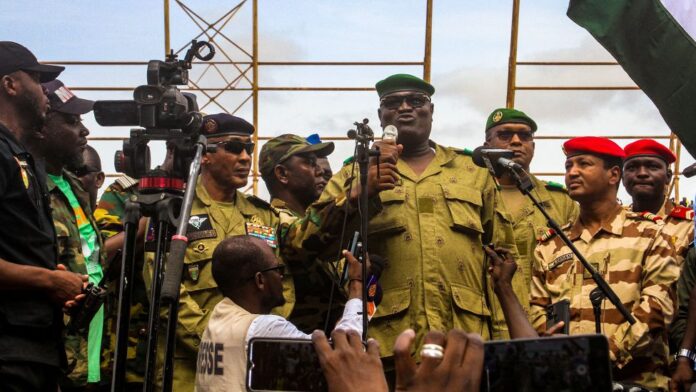In the heart of West Africa, Niger finds itself at the crossroads of a political upheaval that has captured international attention. Following last month’s surprise coup that ousted President Mohamed Bazoum, the United States has stepped in with a series of delicate diplomatic maneuvers aimed at ending the crisis and reinstating the elected leader. Acting Deputy Secretary of State Victoria Nuland recently engaged in face-to-face discussions with the military leaders, describing the talks as “extremely frank and at times quite difficult.”
The coup’s aftermath has spurred a flurry of diplomatic activity, with Washington taking a front-and-center role. Amid fears of escalating tensions, the U.S. has suspended aid payments to the nation, a move that underscores its commitment to peaceful resolution. The West African community, represented by the Economic Community of West African States (Ecowas), had set a deadline for the junta leaders to relinquish power and restore the elected president. However, the junta’s defiance was marked by the closure of Niger’s airspace in response to Ecowas’ threat of military action.
Amidst the unfolding drama, the U.S. envoy expressed the country’s willingness to assist in restoring constitutional order, yet no official acceptance of this offer has been made. The new military chief of staff, Brigadier General Moussa Salaou Barmou, engaged in discussions with the U.S. envoy, while President Bazoum remains detained. Nuland’s concerns extended to reports that the coup leaders had sought assistance from Russia’s Wagner mercenary group, a move that could potentially jeopardize the nation’s sovereignty.

The complexities of the crisis have driven neighboring West African nations to convene and discuss potential actions. Meanwhile, President Bola Tinubu of Nigeria, a key regional player, has raised his voice against the coup leaders, demanding their departure from power. However, the situation is far from straightforward. Tinubu’s quest for military intervention necessitates the approval of the National Assembly, highlighting the intricacies of the region’s diplomatic landscape.
At the heart of the crisis lies Niger’s significance as a uranium producer, a resource of paramount importance for nuclear power. Under President Bazoum, the country played a crucial role in the fight against Islamist militants in the Sahel region, garnering Western support. As the diplomatic dance continues, international stakeholders grapple with the urgent need to preserve stability, safeguard sovereignty, and uphold democratic principles.
Against the backdrop of uncertainty, thousands of coup supporters defiantly gathered at a stadium in the capital, underscoring the junta’s resolve to hold onto power. The unfolding narrative in Niger beckons a resolution that goes beyond the surface, necessitating a delicate balance of diplomacy, sovereignty, and regional security interests. As global attention remains riveted on this West African nation, the world watches with bated breath, hoping for a peaceful and just conclusion to the political upheaval that has gripped Niger.


